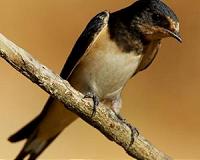 |
Santiago (AFP) May 2, 2011 Chilean officials found traces of radioactivity in tests on around 20 used cars on a ship from South Korea that had been in the vicinity of Japan's damaged Fukushima atomic plant, a report said Monday. The report in the daily El Mercurio quoted Iquique customs director Raul Barria as saying the radioactivity did not appear to pose a danger. He said the vehicles were showing a level of one to five on a radioactive index, below the level of nine needed for an alert. The ship sailed from South Korea and then docked at the Japanese ports of Osaka and Yokohama, located 500 kilometers (300 miles) from the reactor in Fukushima, which saw several explosions after the earthquake and tsunami that struck Japan on March 11. Nonetheless, workers at the Chilean port some 1,800 kilometers (1,100 miles) north of Santiago were concerned and asked for testing, said Moises Chavez, a spokesman for the stevedores. The 83 workers who had contact with the vehicles "were tested by customs at their request," Barria said, adding that none of them showed any ill effects. The cars were part of a shipment of 2,500 vehicles arriving in Chile. Officials said the cars were all to be cleaned by the shipping company before sale in the South American nation.
earlier related report No radiation was released outside, the Japan Atomic Power Co. said in a press release. It occurred at a plant in Tsuruga, some 350 kilometres (220 miles) west of Tokyo and 90 kilometres from Kyoto, while emergency crews continue efforts to stabilise the tsunami-hit Fukushima nuclear plant in northeast Japan. According to a regular check at Tsuruga on Monday, the density of xenon-133 gas and that of iodine-133 had risen inside the primary coolant water in one of the plant's two nuclear reactors, the press release said. "We have determined that there may have been leakage from the fuel assembly and stepped up monitoring the density of radioactive substances in the primary coolant," it said. The company was considering shutting down the reactor for detailed examinations, the statement said.
Share This Article With Planet Earth
Related Links Space Technology News - Applications and Research
 Chernobyl's radioactivity reduced the populations of birds of orange plumage
Chernobyl's radioactivity reduced the populations of birds of orange plumageMadrid, Spain (SPX) Apr 28, 2011 On April 26, 1986, history's greatest nuclear accident took place northwest of the Ukrainian city of Chernobyl. Despite the scale of the disaster, 25 years later, we still do not know its real effects. An international team of investigators has shown for the first time that the colour of birds' plumage may make them more vulnerable to radioactivity. Radiation causes oxidative stress, damag ... read more |
|
| The content herein, unless otherwise known to be public domain, are Copyright 1995-2010 - SpaceDaily. AFP and UPI Wire Stories are copyright Agence France-Presse and United Press International. ESA Portal Reports are copyright European Space Agency. All NASA sourced material is public domain. Additional copyrights may apply in whole or part to other bona fide parties. Advertising does not imply endorsement,agreement or approval of any opinions, statements or information provided by SpaceDaily on any Web page published or hosted by SpaceDaily. Privacy Statement |